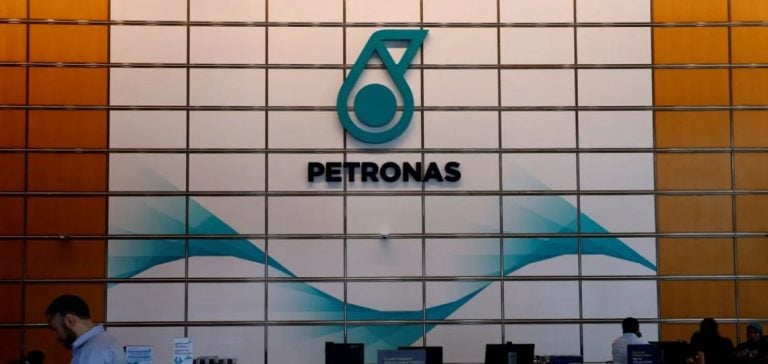Petronas’ oil and gas exploration in the South China Sea, particularly in Malaysia’s exclusive economic zone (EEZ), remains a key geopolitical and economic topic. This initiative is part of a national strategy aimed at enhancing energy independence and supporting the country’s economic growth.
The South China Sea is one of the most contested maritime areas in the world. While Malaysia claims a portion of this zone as part of its EEZ, China claims almost the entirety of the region through its “nine-dash line.” This area is strategic not only due to its trade routes, with 30% of global maritime trade passing through, but also for its underwater energy resources.
Petronas’ Position and Diplomatic Relations
Petronas’ position, supported by the Malaysian government, is clear: to continue exploration in contested waters, particularly in the gas development of Kasawari, while maintaining open diplomatic relations with China. Prime Minister Anwar Ibrahim emphasized the importance of these bilateral discussions, downplaying the notion that these tensions affect the overall trade relations between Malaysia and China.
The Kasawari gas field, off the coast of Sarawak, holds approximately 10 trillion cubic feet of gas reserves. This is a strategic reserve for Petronas and for Malaysia as a whole, both from an energy and financial standpoint. Gas production, which began in August 2024, has major implications for the country’s energy independence as well as for exports to Asian markets, primarily China and other Southeast Asian economies.
Economic Impacts of Kasawari
The financial stakes for Petronas are significant. As one of Asia’s largest public energy companies, the stability of revenues from projects like Kasawari is crucial for supporting its commitments to diversification and energy transition. The development of these reserves strengthens Petronas’ position in the liquefied natural gas (LNG) sector, a key resource for the decarbonization of Asian economies. Asia, as the primary LNG consumer, will rely on this resource for several more decades to fuel its growing energy infrastructure.
However, the continued presence of the Chinese coast guard in the area threatens the stability of these operations. These incursions pose operational and logistical risks that could lead to delays or additional costs for Petronas. Should the situation deteriorate, it could also undermine the attractiveness of foreign investments in Malaysia, particularly in the upstream and midstream oil and gas sectors.
Malaysia-China Relations and Diplomatic Challenges
From a diplomatic perspective, the tensions in the South China Sea are a test for Malaysia’s foreign policy, which must balance its territorial sovereignty with its trade and diplomatic relations with China. Prime Minister Anwar Ibrahim clarified that these tensions have no direct impact on economic relations, as China is Malaysia’s largest trading partner.
However, it is crucial to understand that territorial disputes can indirectly influence future negotiations on tariffs, quotas, and transnational investments. China’s increased presence in this area and its rejection of an international decision (the 2016 Hague arbitration) complicate the management of these tensions.
Financial Challenges for Petronas
For Petronas, the stability of operations in the Malaysian EEZ is essential for maintaining its strong financial profile. The company is a major contributor to Malaysia’s public revenues and exports. Disruption in its operations could have significant repercussions on its cash flows and its ability to finance energy transition projects, including in renewable energies.
The development of gas fields, such as Kasawari, offers Petronas significant potential for LNG exports, strengthening its position among the global leaders in the sector. However, tensions with China represent a risk factor for its investors. If China were to adopt a more aggressive stance, such as blocking access to facilities or imposing sanctions, it could lead to a drop in Petronas’ stock value and disrupt its long-term revenue forecasts.
Outlook and Future Monitoring
Petronas’ oil and gas exploration in the Malaysian EEZ is a strategic pillar for Malaysia’s economy. The Malaysian government, while remaining open to diplomacy, appears determined to continue its operations in the South China Sea. This places Petronas in a delicate position where it must juggle the economic opportunities offered by these energy reserves with the growing geopolitical challenges.
For investors and energy sector professionals, developments surrounding Kasawari and other fields under exploration require careful monitoring. The political decisions made in Kuala Lumpur and Beijing in the coming months will have a direct impact on the stability of energy and financial flows in the region, as well as on Petronas’ ability to maintain its leadership in Southeast Asia’s energy industry.






















